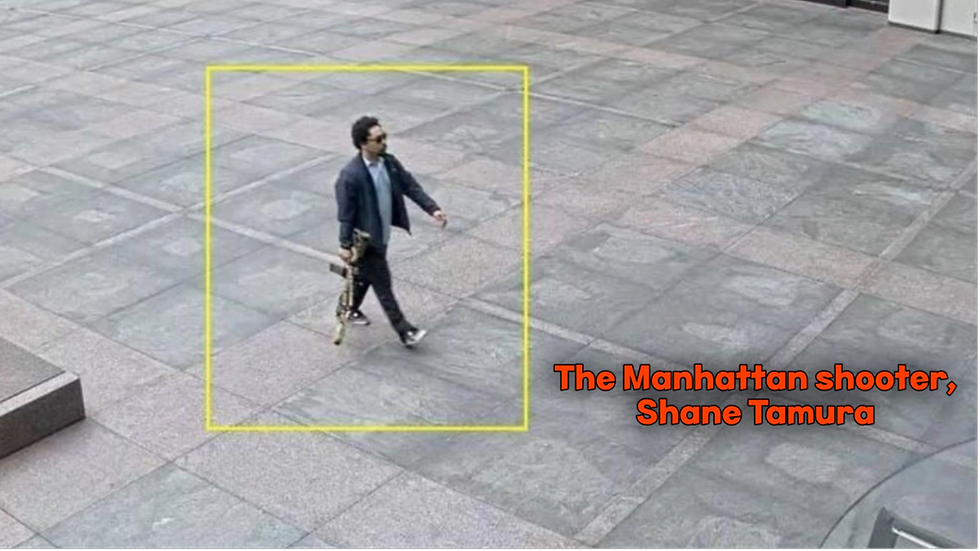Targeted Israeli Airstrike in Gaza and Killing of Six Journalists – International Outrage and Calls for Independent Inquiry
- Teo Drinkovic
- Aug 11
- 3 min read
Israeli authorities allege one of the slain was linked to Hamas; media groups demand transparency, accountability, and protection for journalists

Introduction
On the night of Sunday, August 10, 2025, an Israeli airstrike targeted a journalists’ tent near the main gate of al-Shifa Hospital in Gaza City. According to Al Jazeera, the Committee to Protect Journalists (CPJ), and other international media watchdogs, six journalists were killed: five were Al Jazeera staff and one was a freelancer.
Names and Roles of the Journalists
From reports and documents published in the media, the journalists killed in the attack are listed as follows:
Anas al-Sharif — a prominent Al Jazeera correspondent in Gaza known for frontline reporting.
Mohammed Qreiqeh — Al Jazeera reporter.
Ibrahim Zaher — Al Jazeera photographer/cameraman.
Mohammed Noufal — photographer/cameraman.
Moamen Aliwa — photographer/cameraman.
Mohammed al-Khaldi (freelance) — freelance journalist included among the victims in some reports.
CPJ and similar organizations note that the true number of journalists killed in Gaza since the conflict began surpasses these six. CPJ reports at least 186 journalists killed, most of them Palestinian media workers.
Meanwhile, the Gaza government media office cites 238 deaths among journalists and media staff since October 7, 2023. Reuters

Who Is Being Held Responsible for the Killing of Six Journalists?
Israel’s military (IDF) claims the airstrike targeted a location where a person alleged to be a Hamas cell leader—identified as Anas al-Sharif—was present and was coordinating rocket attacks on Israeli soldiers and civilians. Western outlets like Reuters have relayed this claim.
Al Jazeera, alongside CPJ and human rights organizations, strongly condemned the strike as an assault on journalists and an attempt to silence reporting from Gaza. Al Jazeera maintained that the killed individuals were acting solely in their capacity as journalists.
Disputed Claims and the Need for Independent Investigation
The central controversy lies in Israel’s assertion that one of the slain journalists was linked to Hamas militant activities. Evidence for such claims in war zones is hard to independently verify and often contested by opposing parties.
Media groups emphasize that even if a journalist is suspected of involvement in hostilities, international humanitarian law requires clear identification of legitimate military targets and obligations to minimize risk to civilians and media workers.
Israel’s claims contrast sharply with those of Al Jazeera and journalism rights groups, underscoring the vital importance of transparent, impartial investigations to uncover the truth.
What Should Happen Next
To address the killing of these six journalists—and prevent future tragedies—Al Jazeera, CPJ, and other groups are calling for:
A neutral, international investigation into the incident.
Public disclosure and independent verification of any evidence Israel claims to hold.
Protections for the remaining journalists and reporting spaces, in line with international law.
Accountability mechanisms if it’s found that civilians or journalists were improperly targeted.
Impact on Freedom of the Press
This tragedy deepens fears for media safety in Gaza and raises concerns about the chilling effect on press freedom. Journalists, local and international, continue to risk their lives to report on civilian casualties, hospital conditions, humanitarian crises, and combat operations.
This event is likely to have several immediate consequences, such as the dismissal or restriction of the work of some local and international journalists. In addition, it will put additional pressure on international organizations to demand investigations. It will intensify diplomatic and media discussions on regulations and measures to protect media professionals in war zones.
For many in journalism and civil society, the only thing that matters now is that no one can bring these brave journalists back, regardless of whether Israel’s claims turn out to be accurate or not.






What a shame
Feel free to comment!